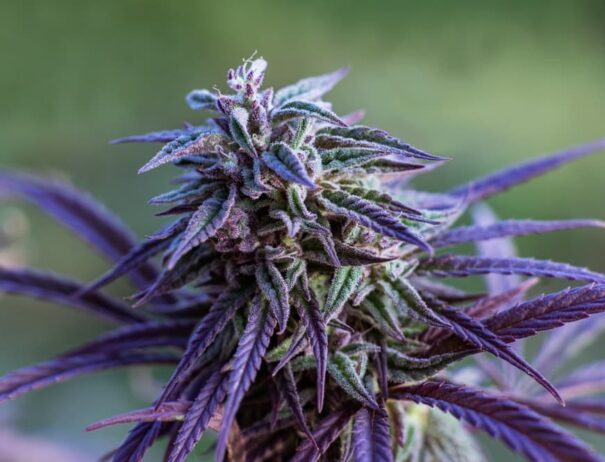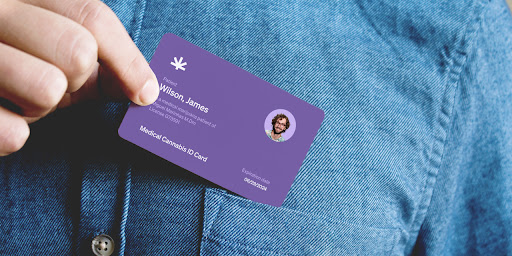What We Know About the Medical Benefits of CBD
And How It May Improve Your Health
With an estimated 40 million adults in the United States dealing with anxiety and an estimated 50 million adults dealing with chronic pain, it’s easy to understand why many are turning to CBD oil, CBD infused drinks, and other CBD products as a treatment option. Not only is the anecdotal evidence mounting in favor of its calming capabilities, but it also doesn’t exhibit any signs indicative of abuse or dependency. As the opioid epidemic rages on, this non-addictive treatment option is becoming more and more enticing.
But since the production and manufacturing of industrial hemp were only made legal in 2018 and flower remains a Schedule I drug, scientific research is still working to figure out exactly why and how so many people are claiming to find success with CBD. Studies are proving positive though, with evidence supporting claims that CBD oil can treat anxiety, pain, insomnia, and a range of other health issues.
What Is CBD?
Cannabidiol, or CBD, is one of over a hundred active chemical compounds found in flower, known as phytocannabinoids or cannabinoids. It interacts with our endocannabinoid system (ECS), which is the system in our body responsible for maintaining internal metabolic balance.
Unlike the other popular cannabinoid, tetrahydrocannabinol (THC), CBD won’t get you high. Generally derived from hemp, which is flower’s non-psychoactive sibling, CBD oil can be full-spectrum, broad-spectrum, or an isolate. Full-spectrum CBD oil is touted as the most effective anecdotally because it contains the full profile of the plant it was extracted from, meaning it holds all the therapeutic compounds of hemp, not just CBD. However, science is still confirming this, and CBD isolate has also shown some promise as an effective treatment for certain ailments.
Medical Benefits of CBD
Studies into CBD’s medical benefits are ongoing, but one area has gained enough evidence to earn FDA approval. Epidiolex, a drug containing isolated CBD, has been approved to treat seizures associated with two severe forms of childhood epilepsy, Lennox-Gastaut syndrome and Dravet syndrome.
The drug was studied in three randomized, double-blind, placebo-controlled clinical trials involving 516 patients with either Lennox-Gastaut or Dravet syndrome. The isolated CBD drug was shown effective in reducing the frequency of seizures when combined with other medications. This particular type of study is considered the “gold standard” in research because neither the patients nor the researchers knew who was receiving the drug and who was receiving a placebo.
The FDA’s approval of Epidiolex was a huge step forward in flower and CBD research and has prompted more research since. While we don’t have as much evidence supporting the claims of other medical benefits of CBD, we do have some, and it’s looking promising.
Using CBD for Sleep and Insomnia
Controlled studies of CBD’s effect on insomnia and other sleep disorders are still needed, but there is some anecdotal and scientific research available. Anecdotally, a recent Consumer Reports survey on CBD found that 10% of respondents claimed to use CBD for sleep, with a majority of them claiming it worked.
On the research side, one recently published study collected data from 409 people with insomnia from June 2016 to May 2018. Insomnia symptoms were rated on a scale of 1 (least severe) to 10 (most severe), with the average being 6.6. The participants were treated with whole flower, meaning more than just CBD was present, including some THC. While the study did show a significant decrease in insomnia symptoms, it can’t be pinpointed to just CBD since other cannabinoids and phytonutrients were present, though CBD was a key player.
Another study published in 2019 looked at 72 adults with primary concerns of anxiety or poor sleep. Using just CBD, sleep scores improved in 48 patients in the first month, but the results ultimately fluctuated over time. Anxiety scores improved in 57 patients within the first month and continued to improve during the duration of the study, supporting the claim that CBD can also help treat anxiety.
Using CBD for Anxiety and Stress
Again, more studies are needed to determine CBD’s role in potentially reducing anxiety, but research is pointing to it being an effective treatment. A 2011 study looked into CBD’s effects on people with social anxiety disorder (SAD), dosing them with either 400mg of CBD or a placebo. Relative to the placebo, CBD significantly decreased anxiety
Another study published in 2019 looked at the participants’ level of symptoms associated with SAD before and after taking CBD or a placebo. While those who took the placebo showed little to no change in symptom levels, those administered CBD showed reduced levels of SAD symptoms.
Because CBD has the ability to stimulate our serotonin receptors, scientific evidence is mounting in support of it being a solid anti-anxiety treatment. It’s even shown promise as a treatment for post-traumatic stress disorder (PTSD), though more research is still needed.
Using CBD for Pain and Inflammation
The medical benefits of CBD go even further when considering the research behind its pain-reducing and anti-inflammatory properties. Science has proven CBD can inhibit an eicosanoid enzyme called COX2 and reduce the effects of pro-inflammatory molecules called cytokines, both actions that work to reduce inflammation.
These anti-inflammatory actions are crucial because inflammation is often a key cause of chronic pain. Studies over the past decade have shown CBD treatment to significantly decrease pain in patients suffering from a variety of issues including multiple sclerosis, spinal cord injury, fibromyalgia, and other ailments. While the studies were often limited by small cohorts, the results were promising.
In studies of generalized chronic pain, results didn’t show a significant decrease in pain, but there was an increase in patient-reported quality of life and quality of sleep. Learn how to effectively use CBD gummies to treat pain here.
Summary of CBD Medical Benefits
As laws and perception change, science is able to dig deeper into flower’s medicinal benefits, especially when it comes to the increasingly popular compound CBD. Research is still being done, but here’s what we know so far when it comes to CBD’s medical benefits for sleep, anxiety, and pain:
- In a 2019 study, using CBD improved sleep scores in 48 patients in the first month of the study, but the results ultimately fluctuated over time.
- A separate 2019 study found that participants with social anxiety disorder (SAD) reported improvement of SAD symptom levels after taking CBD as opposed to those participants that took a placebo.
- Science has proven CBD can inhibit an eicosanoid enzyme called COX2 and reduce the effects of pro-inflammatory molecules called cytokines, both actions that work to reduce inflammation. Inflammation is often a key cause of chronic pain.
- Studies have shown CBD treatment to significantly decrease pain in patients suffering from a variety of issues including multiple sclerosis, spinal cord injury, fibromyalgia, and other ailments. In studies of generalized chronic pain, results didn’t show a significant decrease in pain, but there was an increase in patient-reported quality of life and quality of sleep.
There’s not a lot that has been established as scientific fact yet, but the findings are moving in that direction. If you’re considering trying CBD oil for treatment, consult your physician first, and be careful to search out a quality product. With the industry still lacking strong regulation, your best bet could be to make your CBD oil at home with a machine like the LEVO II. Easy to use and effective at extracting oil from your CBD flower, the LEVO II will leave you with a personal CBD oil of which you know every ingredient. Plus, you can use it to infuse just about anything with CBD, so you can make CBD topicals and edibles too!
Related Posts:

Get Your Free eBook!
Download our FREE resource, The Ultimate Edibles Guidebook, full of recipes, infusion tips and everything you need to make your first batch of edibles today!



